Inside-Out classes where RMIT’s criminology and justice students and incarcerated people undertake an elective and learn as equals were introduced in 2015 by Dr Martinovic. These now offered at seven prisons. 800+ university students and incarcerated people have completed it. Post Inside-Out incarcerated people apply their knowledge in advocacy by transitioning into prison-based Think Tanks and subsequently community-based Think Tank upon release. There are six prison-based Think Tanks and a community-based Think Tank with 125+ active members. Created and led by Dr Martinovic these Think Tanks have engaged in 100+ consultations with stakeholders about finding solutions to complex issues in the justice sector. ‘Prison-based and Community-based Think Tanks’ are an Australian first initiative which has resulted in systemic change led by the voices of incarcerated/ex-incarcerated people. The knowledge exchange within Think Tanks plus the robust consultation with stakeholders, has had a significant impact on the Department of Justice and Community Safety who have implemented many of the Think Tanks’ recommendations, and now have a strategic policy to include the voices of incarcerated/ex-incarcerated people in operational/procedural decision-making. The Think Tanks however are not just ‘programs’ for incarcerated/ex-incarcerated people, these are the only safe spaces for them to openly and honestly discuss their deep personal systemic experiences, engage with stakeholders, and collaboratively design innovative strategies to improve the justice system. The impact is hence priceless -- less judgmental, more inclusive and collaborative society providing real opportunities for disadvantaged and marginalised incarcerated/ex-incarcerated people, thereby resulting in a safer society.

CATEGORY WINNER
Impactful Collaboration of the Year Award
Prison-based and Community-based Think Tanks
CATEGORY WINNER Impactful Collaboration of the Year Award
RMIT University - Australia
"Driving social change and building community through collaboration "
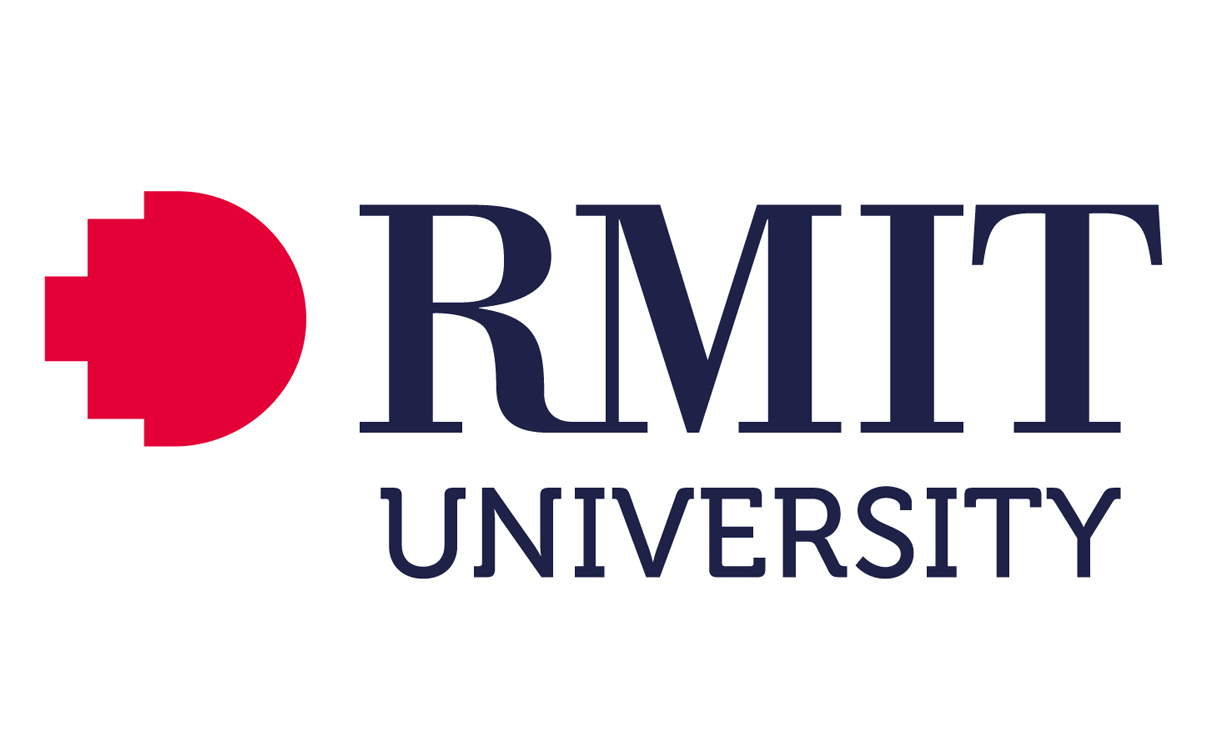
Summary
Key People
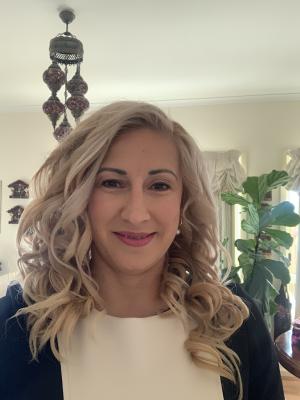
Dr Marietta Martinovic
Associate Professor
Criminology and Criminal Justice ,
RMIT University
Images

Community-based Thinking working on a project - Design thinking in corrections
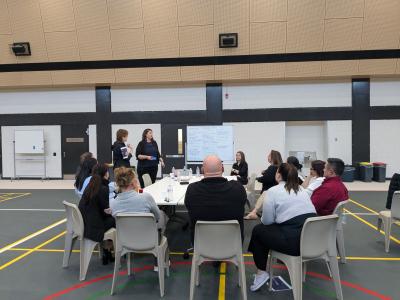
Community-based Think Tank collaborating with Department of Justice staff
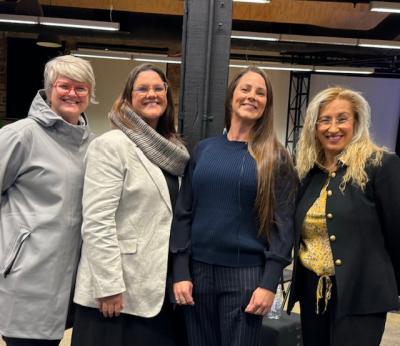
Community-based Think Tank members with key stakeholders - Law week event
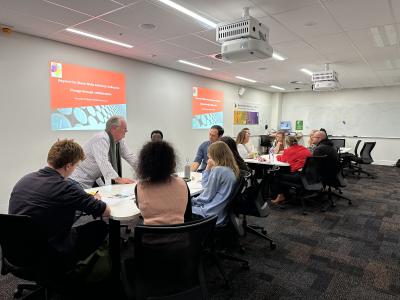
Community-based Think Tank members educating community members - Social Sciences week event at RMIT University
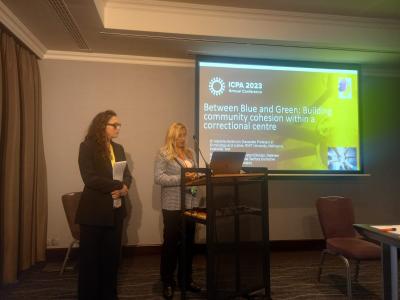
Presenting the work of the Think Tanks at International Corrections and Prisons Association Conference in Antwerp, Belgium
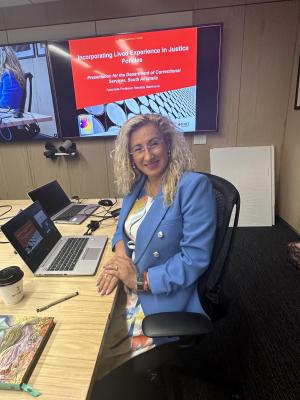
Dr Martinovic conducting a presentation on Implementing Think Tanks for South Australian government
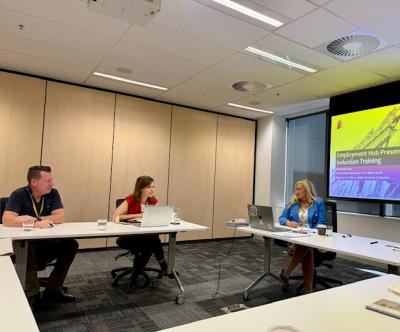
Dr Martinovic training Community-based Think Tank members
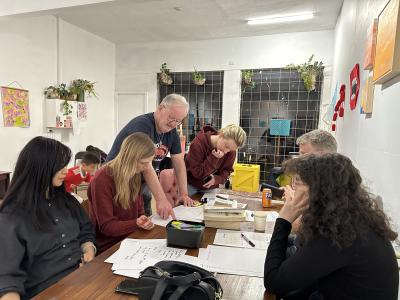
Members of Community-based Think Tank collaborating
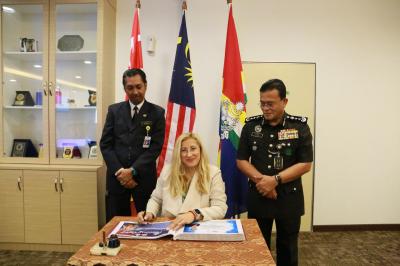
Dr Martinovic recognised for her work by the Malaysian Department of Justice
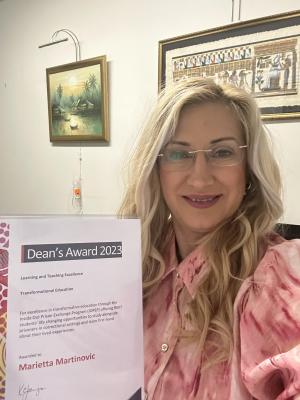
Dr Martinovic recognised for her work related to Prison-based and Community-based Think Tanks by RMIT University
IMPACT STORY
Impacting lifes
The impact of Think Tanks’ work has been immense; humanising the incarceration experience for incarcerated people and enhancing their chances of engagement in pro-social activities and thereby reduced reoffending. For example,
- Operational prison-based reforms - the formulation, development and implementation of incentives programs rewarding positive behaviour of incarcerated people; introduction of an easy-to-read relatable induction booklet for new admissions about the reality of life in prison, support and services.
- Wider systemic reforms - panels of ex-incarcerated people going back into prisons (unprecedented) to share inspirational stories about their transition back into the community; Non-Government Organisations working in reintegration space are mandated by the government to employ ex-incarcerated people (unprecedented).
- Specific reform - “Breaking Down Barriers Between Blue and Green program'' created by the Think Tanks as a part of a submission responding to the Department’s ‘Cultural Review of the Adult Custodial Corrections System. The innovative ‘Between the Blue and Green’ program, with separate training workshops for newly recruited prison officers and established prison staff, aims to improve relationships by developing mutual respect and understanding, thereby enhancing incarcerated people prospects of rehabilitation and lowering their chances of reoffending. After five piloted sessions, in 2023 the ‘Between Blue and the Green’ program is set to become part of mandatory state-wide prison staff training. A senior executive from the Department of Justice commented: “This program shifts the inappropriate and outdated power dynamic between prison officers and prisoners to one of inclusion, compassion and collaboration – a life-changing game-changer for all involved.”
LEARNINGS
Lessons learned
The success of ‘Prison-based and Community-based Think Tanks’ can be attributed to its unique operation. The Think-Tanks are set up differently and operate distinctively to all other advocacy and advisory groups in Australia (such as FlatOut and Sisters Inside) as their advice is incremental, apolitical and led by the voices of contemporary lived experience. When arguing for systemic change, latest empirical research and practical strategies for improvement are provided to stakeholders.
Dr Martinovic trains members in understanding the complexities of policy-making, policy reform and incremental change. Members are encouraged to consider issues not only from their individual viewpoint, but also from a holistic perspective where they reflect on the wider concerns of others who are experiencing the CJS. Incarcerated/ex-incarcerated people engaged in the Think-Tanks attain a sense of purpose, gain or regain their sense of confidence and worth, and create prosocial relationships built through mutual learning and understanding.
What also sets the ‘Prison-based and Community-based Think-Tanks’ apart is their primary advisory capacity and close partnerships with government agencies, particularly Department of Justice and Community Safety. Other organisations are mainly advocacy groups, without partnerships with government agencies and visions to totally reform the CJS’s punitive ideology and operation. Members are educated about the complicated connection between policy-making and the role of politics in designing innovative strategies. They develop skills in negotiation and teamwork, and learn to work through situations when there is vehement disagreement and a unified position required. This builds their capacity for personal and professional growth.
FUTURE PLANS
What's coming?
In addition to stakeholder consultations which have resulted in systemic changes, the Community-based Think Tank has been offering a host of creative, community-building initiatives, such as:
• Newsletters - written by people in custody for people in custody, to harness and nurture hope.
• Podcast that invites people ex-prisoners, criminal justice practitioners and researchers to discuss the complexities of life in and after prison.
• Art exhibitions which transcend the common imagery associated with prisons, such as barbed wire and prison walls, to explore the humanity that exists beyond the confines and emphasise our shared connections.
• Community education through Victoria Law Foundation’s Law Week series, Australia-wide Social Sciences Week events, and RMIT’s Future Inclusive Festival. These initiatives evoke curiosity, serving as a powerful medium to communicate Think Tanks’ mission towards inclusion and de-stigmatisation to a wider audience.
Dr Martinovic’s vision is to create additional and ongoing opportunities for dialogue between ex-incarcerated people, policy-makers, practitioners and the wider community, in order to foster hope, respect and healing. By establishing a space for rich discussion, we work collaboratively towards a fairer, more humane Criminal Justice System, and consequently a safer society. Philanthropic funding is currently being explored.
There has been national and international interest in the Prison-based and Community-based Think Tanks. Governments in New South Wales, Tasmania, Queensland (in Australia) and New Zealand have sought advice from Dr Martinovic to establish similar initiatives and understand the critical factors for success. Dr Martinovic has been collaborating with these governments brainstorming suitable jurisdiction-specific initiatives.

